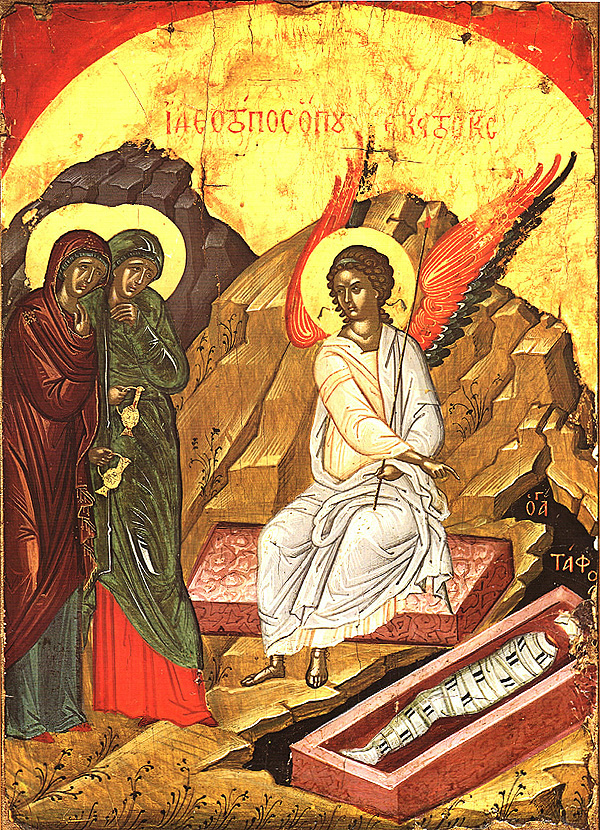The Abbot writes:
Some years ago, I preached the retreat during Holy Week at the abbey: an introduction to the mysteries celebrated in the liturgy of these holy days. To one of our confreres I admitted that it was far easier to speak about Jesus’ Passion, suffering and anguish preceding the resurrection, than about Easter itself.
He understood. He said that we all understand physical suffering, fear of death, betrayal and utter loneliness. But Easter points at something different and altogether new. All of us are familiar with the power of death and its forbidding presence in our daily life and in the world. Hope, faith and trust belong to the realm of grace. They are Gods’ gift. It is evident that we question ourselves about the sense of our attempts to love, to strive for fraternity and solidarity, our longing to be really good and caring in this world. We seem powerless against the doom of destruction and decay, violence and injustice.
But illuminated by his encounter with the living Christ, Saint Paul said: “What is foolish in the eyes of the world has been chosen by God to shame the wise; what is weak in the eyes of the world has been chosen by God to shame the strong; what is insignificant and despised in the eyes of the world, what is nothing, God has chosen to destroy what is something (1 Corinthians 1: 27-29).”
The gospel of Easter Sunday (John 20: 1-9) leads us every year again to the bud, the first gleam of the faith that has grown into the robust tree, the bright light that lives and shines forth in the proclamation of the gospel in the Apostolic Church and in the life and teaching of the saints. The scene is a garden: a place of cherished life, life that is taken care of. In this garden stands the empty tomb where the dead body of Jesus had been laid down with respect and care. Slowly it would become clear that what seemed the end was in reality a new beginning.
The confusion of Mary of Magdala, the silence of Peter and the faith of the disciple who ran faster than Peter, but entered the tomb after him, are all signs of an encounter with new life, with hope that takes root in our own life when we meditate on this “nothing” that destroys evil and death, which seem so all-overpowering. The peaceful and silent garden in the morning brims with life. Together with Mary Magdalene, Peter and the nameless disciple, we need to attune our hearts to the unexpected newness, to this seed of hope that buds in the garden. The mute lips of the empty tomb inarticulately speak of the victory of the crucified Christ. God proclaims unambiguously that He recognizes himself in this powerless Messiah who loved to the end.
The liturgy of Easter-tide will lead us into the fullness of the Pascal creed. We will need, however, to return often to this hesitant beginning. It is so tempting to give in to world-wise cynicism which is nothing but civilly disguised despair. Violence, decay, corruption, abuse – all forms of evil seem so imposing and powerful. In the words of psalm 11, 3 (11:3) we could ask “When the foundations are being destroyed, what can the righteous do?” The gospel of Easter Sunday answers this question. All genuine love and care are stronger than life-destroying evil. Death does not have the last word. The Father of Jesus does. And He is love.
May we find ways to live up to this faith in our communities as they are. May God’s Spirit be your breath.
Easter 2019,
Jos Wouters, o.praem., abbot-general
#Norbertine
#OPraem
